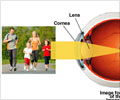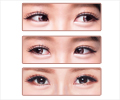
"One component of the study has found the prevalence of myopia (near-sightedness) on Norfolk Island is lower than on mainland Australia," said University of Western Australia academic David Mackey.
"But there was a two-fold higher prevalence of myopia in people without Pitcairn ancestry.
"We found the rate of Pitcairn group myopia is approximately one-half that of the Australian population and as a result would be ranked among one of the lowest rates in the world."
Pitcairn was settled in 1789 by mutineers from the British naval ship the Bounty, who famously set their captain William Bligh adrift in the South Pacific.
Many of the families of the mutineers moved from Pitcairn, a five-square-kilometre island midway between New Zealand and Chile, to the larger Norfolk Island in 1856.
Advertisement
He said nearly 800 of the island's 1,200 inhabitants took part in the study.
Advertisement
A lack of sunlight is thought to be related to myopia, with exposure to the sun's rays believed to stimulate production of the chemical dopamine, which in turn stops the eyeball from growing elongated and distorting the focus of light entering the eye.
Source-AFP













